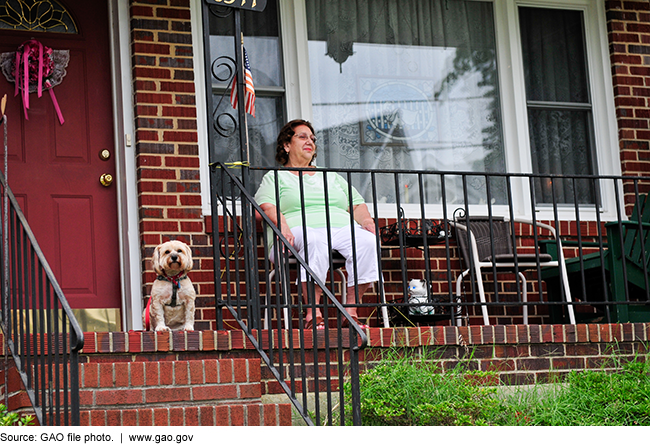Last week we discussed land contracts as a tool for buying or selling a home in a difficult market. Today, we'll take a look at rent-to-own agreements, which are similar, but with some important differences.
Both land contracts and rent-to-own (also called lease-to-own) agreements are a type of seller financing. They can make it easier to buy or sell a home during times when mortgage financing is hard to come by, by eliminating the need to get approval from a regular lender.
Rent payments go toward equity
In both a rent-to-own or land contract, the buyer makes regular monthly payments to the seller rather than to a bank or other financial institution. After a period of time specified in the lease/sales contract - often two to five years - the buyer pays off the balance of the sales price by taking out a regular mortgage on the property.
In a lease arrangement, the deal is structured so that the buyer has the option of buying the property at a predetermined price at the end of the contract period. On a land contract, the buyer purchases the property at the outset, with a balloon payment due to the seller at the end of the contract. In both cases, some or all of the buyer's monthly payments, plus any money paid up front, are figured into the purchase price to help the buyer establish equity in the property.
The seller as landlord
The big difference between a rent-to-own arrangement and a land contract is that the seller maintains control of and responsibility for the property in a lease deal. The seller is responsible for the maintenance of the property, any repairs and for paying property taxes and insurance, the same as any landlord. The seller also gets to deduct those costs, as well as any mortgage interest, on his or her tax returns.
On a land contract, the buyer is responsible for property taxes, insurance and mortgage interest, although these will usually be paid through the seller. However, the buyer does get to deduct them from his or her taxes; the seller cannot.
A buyer's right to make improvements or alterations to a property may also be more limited under a lease agreement, unless those rights are specifically granted through the lease contract.
For a seller, one of the main advantages of a lease-to-own arrangement is that it's easier to evict a buyer for nonpayment. The process for evicting a tenant for nonpayment is generally faster and simpler than foreclosure, which is typically required in the case of a land contract.
An option, not obligation, to buy
For a buyer, a rent-to-own agreement carries less of an obligation at the end of the contract than a land contract does. In a lease-to-own, the buyer has the option - not the obligation - to buy the property at the end of the contract period. With a land contract, the buyer has already entered into a loan agreement for the full purchase price. If the buyer decides not to - or is unable to - obtain a regular mortgage to cover the balance remaining at the end of the contract, that's a default and can do serious harm to the buyer's credit.
For the buyer, this makes a rent-to-own deal a type of "try before you buy" arrangement. If problems with the home are subsequently discovered, or if property values fall significantly, the buyer can back out of the deal with no further consequences, although they will be out any money they have paid in rent.
To guard against this, sellers typically charge an upfront fee called an "option to buy." Usually several thousand dollars, it gives the buyer an added incentive to follow through on the deal and a cushion for the seller in case the buyer backs out due to declining home values.
Lease-to-own downsides
For buyers, one of the upsides of a land contract is that you can obtain title insurance and register the sale with the county (though many are not). This allows you to identify any restrictions or liens on the property up front, which you may not be aware of if you opt for a rent-to-own arrangement. Registering the sale also provides some degree of protection against subsequent liens against the property.
In a lease, the buyer loses any money paid in rent and upfront if they cannot keep up with the rent payments or are unable to obtain regular mortgage financing to complete the transaction at the end of the contract period. In a land contract, buyers may still retain an equity interest in the property in these situations, depending on state law.
Finally, the main shortcomings of land contracts are also true of rent-to-own agreements. Specifically, if a buyer is unable to qualify for a regular mortgage now, there's a good likelihood they may still be unable to when they contract period expires, even though many assume their finances, credit or equity position will have improved by then. Also, it's typically a more expensive way to buy a home than through a regular mortgage.
If you decide to go the rent-to-own or land contract route, it's important for both buyers and sellers to get the help of their own attorney to advise them and help write the lease/sales contract. The advice of a Realtor with experience in setting up such agreements is strongly recommended as well.





